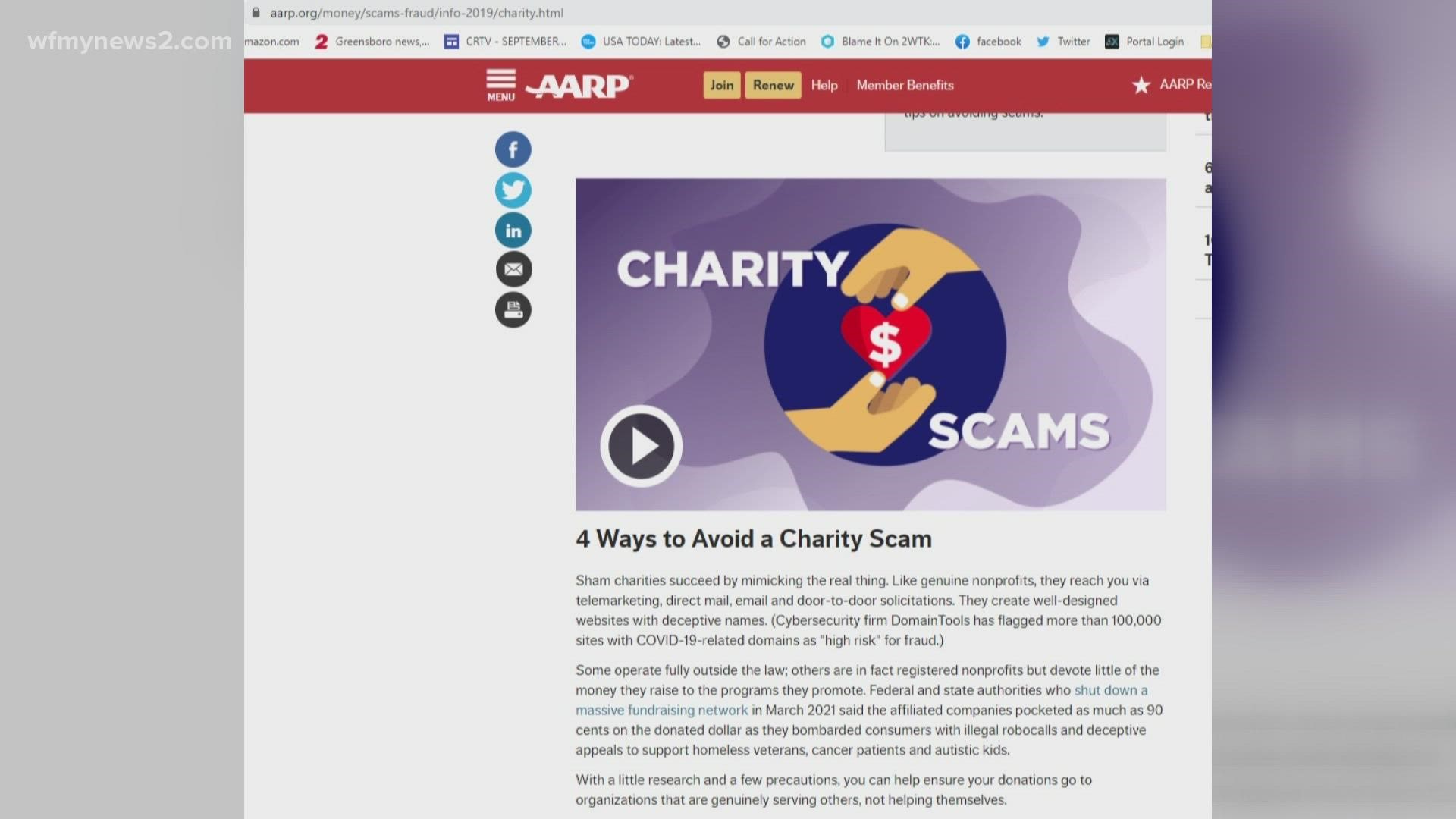GREENSBORO, N.C. — When you hear the words “veteran” and “scams” you might immediately think only former military folks need to be worried.
“It's not only targeting veterans and their families but all the people who support veterans. This is an important takeaway because it's everyone that can be scammed,” said Retired Colonel Shirley Gerrior.
From the AARP Charity Scams Resource:
Warning Signs
- Pressure to give right now. A legitimate charity will welcome your donation whenever you choose to make it.
- A thank-you for a donation you don’t recall making. Making you think you’ve already given to the cause is a common trick unscrupulous fundraisers use to lower your resistance.
- A request for payment by cash, gift card or wire transfer. Those are scammers' favored payment methods because the money is difficult to trace.
On behalf of AARP, Gerrior is warning everyone to beware of the veteran charity scams or really any charity scams. The Retired Colonel's advice? Have a "no" script ready.
“Put it on a sticky note or whatever, but the point is, telling the caller no because you want to check the charity out,” said Gerrior.
This is timely with Christmas and the end of the year coming. To check out a charity, do what 2 Wants To Know does, look them up on Charity Navigator.
Once on the site, you'll put in the charity name, and on their page, you’ll see the overall score. Charity Navigator has several ways they score a charity. The main one is financing. Look for Program Expense Ratio.
The most efficient charities spend at least 75% on services.
Gerrior says veterans and their families are 40% more likely to be scammed than other folks. Why? Because the scammers are looking for them. Many of the scams center around getting their monthly benefits in one lump sum. Gerrior says that sounds good, but it doesn't really exist.
AARP has a fraud network. You can sign up to get emails or texts about upcoming scams. Check out the page to see what other resources will be helpful

